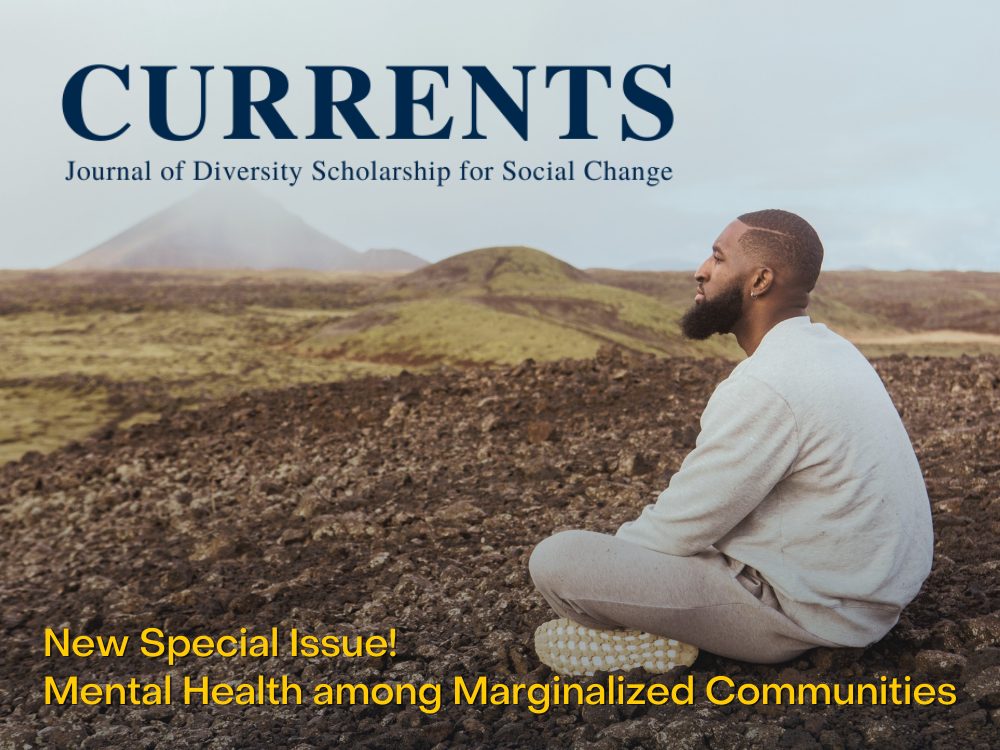- About
- News
- Events
- Initiatives
- Anti-Racism Collaborative
- Change Agents Shaping Campus Diversity and Equity (CASCaDE)
- Diversity Scholars Network
- Inclusive History Project
- James S. Jackson Distinguished Career Award for Diversity Scholarship
- LSA Collegiate Fellowship Program
- University Diversity & Social Transformation Professorship
- Publications & Resources
- About
- News
- Events
- Initiatives
- Anti-Racism Collaborative
- Change Agents Shaping Campus Diversity and Equity (CASCaDE)
- Diversity Scholars Network
- Inclusive History Project
- James S. Jackson Distinguished Career Award for Diversity Scholarship
- LSA Collegiate Fellowship Program
- University Diversity & Social Transformation Professorship
- Publications & Resources

Centering Social Justice in Community Engagement
February 24, 2022
Call for Proposals: 2022 Anti-Racism Grants for U-M Faculty
March 7, 2022Announcing Currents special issue: Mental Health among Marginalized Communities
The National Center for Institutional Diversity (NCID) at the University of Michigan and the Steve Fund, a national nonprofit organization dedicated to the mental health of young people of color, launched a partnership in 2019 to raise awareness of mental health among students of color and offer evidence-based interventions and best practices for educators and decision-makers. We did not know that mental health and emotional well-being would become even more critical for marginalized communities as we entered into the COVID-19 pandemic and nationally experienced a myriad of discriminatory and violent incidents against marginalized communities. As our nation continues to grapple with this trauma, we have once again partnered to release a special issue on mental health among marginalized communities.
The collection of pieces presented in this special issue gives us insight into the unique mental health experiences and needs across marginalized communities, and intersecting identities must be taken into account when analyzing a population and developing interventions. The diverse methodological approaches presented also give light to the varied ways in which we can further our understanding of the complexities across groups. In this process, the authors noted challenges and gaps that remain in research and practice, particularly in how we continue to measure mental health and develop interventions that are culturally relevant.

As we continue to understand the number of impact areas that the COVID-19 pandemic has brought to our communities, the mental health marginalized communities must continue to be critically important. As a nation, we have also continued to increase awareness of the mental health effects that come from racism, sexism, xenophobia, homophobia, and other forms of oppression, which are unique to each community but have long-term implications for health and success of communities. It is important and necessary for scholars to continue to contextualize and inform these phenomena while offering practical implications that can be applied across sectors and our society.
Special Issue Editors
Tabbye Chavous, Director of the National Center for Institutional Diversity; Associate Dean for Diversity, Equity, and Inclusion in the College of Literature, Science, and the Arts; and Professor of Education and Psychology at the University of Michigan
Sherry Molock, Senior Research Fellow at the Steve Fund; Associate Professor of Clinical Psychology at George Washington University
Laura Sánchez-Parkinson, Manager of Public Scholarship Initiatives at the National Center for Institutional Diversity at the University of Michigan; Former Director at the Steve Fund
Enhancing Transformative Social-Emotional Learning with Intergroup Dialogue: An Exploratory Study by Annahita Ball & Candra Skryzpek
Skillful Sailors of Impossible Seas: Exploring Black Older Adults’ Experience with Chronic Stress and Mental Health by Lauren L. Brown
Information Needs for an Online Resource for LGBTQ+ Young People: Mental Health, Sexual Health, and Navigating Services by Daniel Delmonaco, Gary Harper, Shannon Li, Christian Paneda, Amber Hughson, Elliot Popoff, Laura Jadwin-Cakmak, & Oliver L. Haimson
Racial Climate and Mental Health Service Utilization among Black College Students at Diverse Institutions by Seanna Leath & Martinque Jones
Black Doctoral Students’ Mental Health: Unmasking Student Experiences by Carmen M. McCallum, Allison Boone Green, Susanna Long, Kellyn Mackerl-Cooper, Elijah Vasquez, Gloryvee Fonseca-Borlin
Mental Health and Resilience Among LGBTQ+ College Students with Disabilities by Ryan A. Miller, Richmond D. Wynn, Bryan G. Stare, Johnine N. Williamson, Lex Guo
“It’s a stomachache filled with stress”: Tracing the Uneven Spillover Effects of Racialized Police Violence using Twitter Data by Hajar Yazdiha & Courtney Boen
Parent-Child Relationships and Mental Health in the Transition to Adulthood by Race and Ethnicity by Xing Zhang & Annaliese Grant




